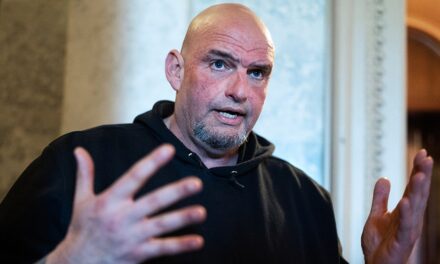In a recent discussion, Charlie Kirk, the prominent conservative activist and founder of Turning Point USA, expressed a strong sense of optimism regarding the increasing appeal of conservative ideologies among young Americans. This statement came in the wake of a conference organized by the Democratic Party aimed at engaging Generation Z voters, which Kirk attended and analyzed closely.
Kirk’s confidence stems from observing the tactics and messaging employed by the Democrats in their efforts to connect with the younger demographic. Through various media appearances and on social platforms, he articulated how he believes the far-left’s approach could backfire and instead galvanize conservative values among young people.
His commentary revolves around the fundamental shifts in political engagement we are currently witnessing, especially as the next election cycle approaches. Kirk pointed out that many young voters are beginning to question the progressive policies that have long been championed by the Democratic Party, policies which he argues may not align with their values or interests.
During the Democrats’ summit, Kirk noted a noticeable shift in tone and method, suggesting that the party is recognizing the importance of appealing to a demographic that represents a significant portion of the electorate. However, he also interpreted this shift as indicative of desperation, asserting that the strategies implemented were reactionary rather than proactive.
As Kirk analyzed the various discussions and presentations made by Democratic leaders during the summit, he found several areas where he believes conservatives can find success in resonating with young voters. For instance, he highlighted the emphasis on identity politics and the ways in which they could alienate potential supporters. In his view, young people, especially those from diverse backgrounds, may be craving a sense of unity and common purpose rather than division based on identity.
Furthermore, Kirk discussed the topic of education, which has emerged as a pivotal issue for young Americans. He argued that the conservative message concerning educational reform, school choice, and the importance of curriculum transparency are resonating well with students and their families. Many young people, according to Kirk’s assessment, are beginning to reject the increasingly politicized nature of education in favor of a more balanced approach to learning.
In this environment, Kirk believes that conservatives have a unique opportunity to present an alternative narrative that emphasizes individual liberty, responsibility, and the potential for upward mobility. He points out that many Americans, including young voters, are increasingly critical of government overreach and the expansive welfare state. This disillusionment, he argues, has created a ripe opportunity for conservative messaging that speaks to these concerns.
Moreover, Kirk emphasized the importance of engaging with young voters on social media platforms, where they congregate and communicate. He contends that being present in these digital spaces is crucial for conservatives hoping to make inroads with this demographic. He recognized that the language used must resonate with their values and concerns while countering misinformation that may circulate within left-leaning platforms.
Charlie Kirk is also keenly aware of the cultural elements influencing young minds. He addressed the rise of “woke” culture and how it has shaped discussions around social issues, urging conservatives to engage thoughtfully and effectively on these fronts. He believes that an authentic approach to cultural conversations could disarm some of the more extreme ideas predominant in leftist circles, potentially attracting undecided youth.
Kirk’s conviction is reinforced by examples of increasing youth support for some conservative figures and policies. He points to polling that suggests a shift among younger voters on issues such as economic policy and personal liberties. He argues that as long as the conservative message is articulated well and actively reaches out to young Americans, a significant portion of this demographic could tilt toward conservatism in upcoming elections.
The United States is at a pivotal juncture, especially with the post-COVID landscape shaping political and social discussions. Young voters, who often prioritize issues such as climate change, social justice, and economic opportunities, present an interesting challenge and opportunity for conservatives. Kirk believes that by framing these issues in a manner aligned with conservative values, there is potential to sway opinion.
Kirk’s remarks have sparked conversations within conservative circles about strategies moving forward to bolster support among younger generations. He advocates for creating environments where young people feel their voices matter in political discussions, not just as part of demographic data but as active participants in shaping policy. Such engagement, he argues, can bridge the gap between youth concerns and conservative principles.
Despite the rapid changes in the political landscape, Kirk’s stance is clear: conservatives must remain steadfast in promoting their ideas while evolving their approaches to young voters. He emphasizes the importance of listening and adapting to the unique needs of the younger generation. With a history of activism and grassroots organizing, he intends to mobilize and inspire young conservative leaders to carry the message forward.
In conclusion, Charlie Kirk’s insights into young Americans’ political inclinations reflect a broader narrative about the conservative movement’s future. His observations of the Democratic summit offer a lens through which to view the ongoing battle for the hearts and minds of a crucial electoral demographic. As conservatives continue to refine their message and reach out to the younger populace, it will be interesting to observe how these dynamics play out in the years ahead.
As we anticipate future elections, the strategies employed by both parties to attract and retain young voters will undoubtedly shape the political landscape. Charlie Kirk’s optimism could signal a resurgence for conservatism if the right messages are communicated effectively and resonate with the principles and values young people hold dear. Through sincere engagement and grounded discussions on key issues, conservatives are not only aiming to win voter support but also seeking to foster a generation that is committed to the tenets of freedom and limited government.
































